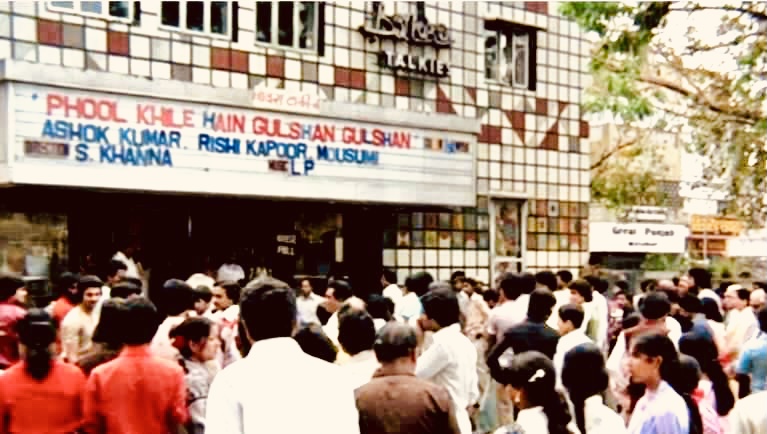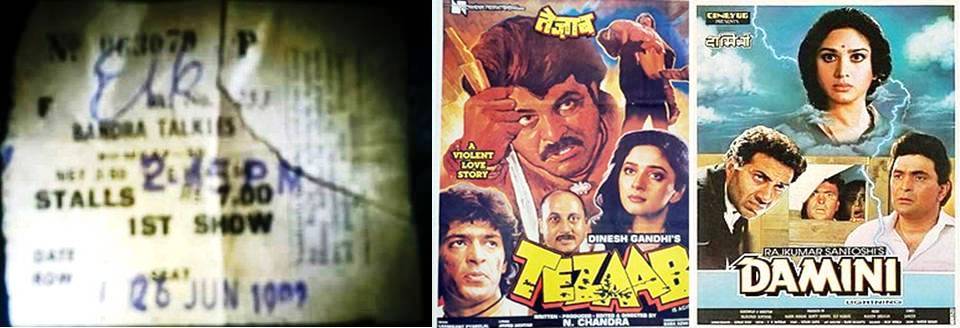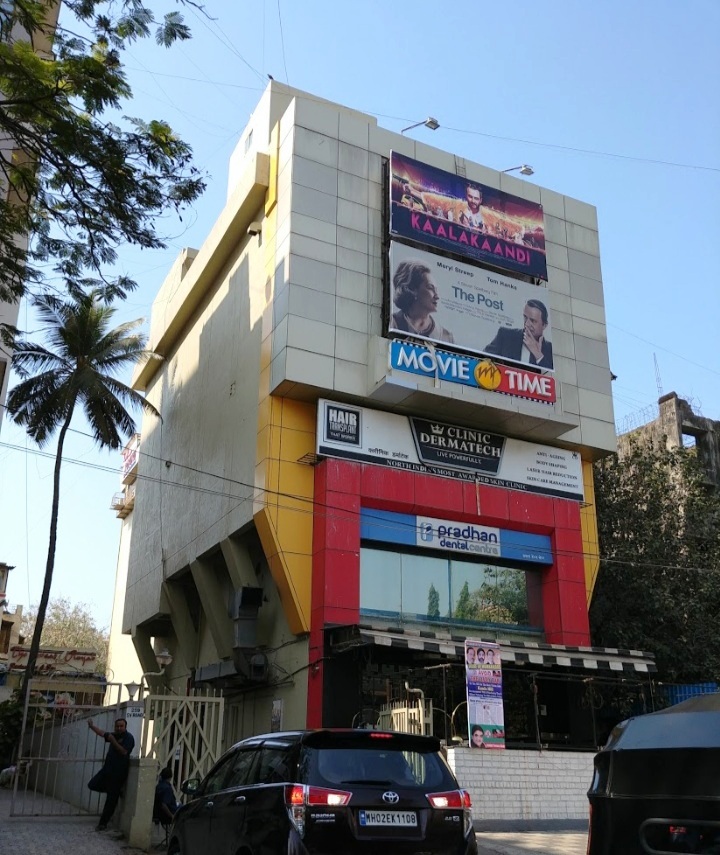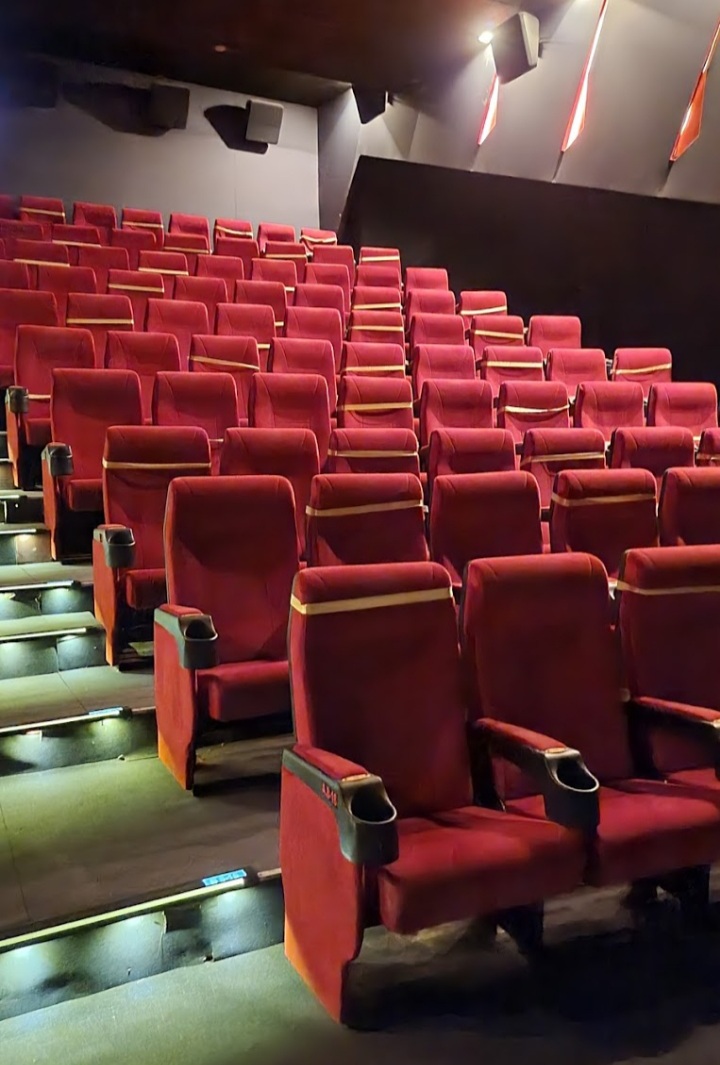
The oldest cinema in Bandra named after the area itself; Bandra Talkies was functional since the 1950s much before other theatres like Neptune and New Talkies came in. In its initial days, the theatre was not a fully equipped cinema hall but just a tin shed establishment where the ticket prices were extremely cheap and hence, it was also known as “Chavanni wala” (twenty five paise) theatre. The price would range between five annas to ten annas for lower stalls, upper stalls would go for one rupee (or sixteen annas) and the balcony seat was around one and half rupees.
Bandra Talkies was then owned by three brothers Roshanji, Yususfji and Sultanji. It was a non- airconditioned cinema and quite small as compared to other theatres of that time but was nevertheless, frequented by family crowd. Interestingly, the theatre had entry and exit from both the sides of the bustling SV road (then known as Ghorbunder road) and linking road while the car parking was only from SV road as the linking road side had steps. This common passage still exists and is used by commuters going to the nearby Bandra station.
In the 1984 film Mashaal, Bandra Talkies can be seen in a scene where Anil Kapoor sells tickets in black for the film Phool Khile Hain Gulshan Gulshan (1978). Later, Anil Kapoor and co-actor Gulshan Grover can be seen exiting from the linking road side.
Unlike other cinemas in the area, films used to enjoy a long run at Bandra Talkies which made it a preferred release place for many noted producers and directors. Like Opera House in Mumbai, even an average or a flop film would run for minimum four to five weeks at Bandra Talkies. The theatre owners had struck good relations with certain producers and distributors and would invariably release their movies.


For instance, Yash Chopra’s Daag (1973), Noorie (1979), Nakhuda (1981), Chandni (1989) and Lamhe (1991) were released at Bandra Talkies. Mehul Kumar, known for hard hitting action packed films, preferred this cinema to release some of his hits like Marte Dam Tak (1987), Jungbaaz (1989), Tirangaa (1993) and Krantiveer (1994). In fact, Krantiveer was one of the last superhit release here.
In its ’70s avatar, Bandra Talkies was class divided in to a large stall and smaller balcony. There would be a huge nylon rope tied in the stall behind the first four rows. The stalls would sometimes get flooded during heavy rains and shows would get impacted. The theatre was known to screen Hindi films only but on Thursdays, it would screen Hollywood films at 10:30 am as the nearby convent school would have mid-week holiday.
Black marketing of tickets was common at most single screens during their glory days. Bandra Talkies was no exception. But there was a time when it was the only place which would not allow black marketing of tickets outside the theatre. A tall Pathan named Lala who had a towering personality, was the theatre guard in those days and he would not allow blackers to stand or solicit patrons near the theatre. This guy was well known in the area and worked at Bandra Talkies for a long time and controlled the crowd very well.
The cinema had advance booking system earlier but sometime later, it stopped this practice and tickets would be given at the counter forty five minutes before the start of the film. The main booking counter was inside the lobby while the other counter was at the theatre’s rear side. It also followed a unique token system where coloured tokens would be given to patrons in queue who missed the earlier show and would wait for the next show. These tokens could be exchanged at the counter for next show tickets and those having tokens got preference at the booking counter.
There is a long list of movies which did well here: The Jeetendra- Asha Parekh starrer Caravan (1971) was a big hit and the ticket prices were increased from one rupee to one and half rupees for Bangladesh Relief Fund. Other hits over the decades include Jewel Thief (1967), Ittefaq (1969), Aradhana (1969), Anand (1971), Amanush (1975), Kasme Vaade (1978), Devata (1978), Thodi Si Bewafaai (1980), Ek Duuje Ke Liye (1981), Dharam Kanta (1982), Saaransh (1984), Sanjog (1985), Nache Mayuri (1986), Pushpak (1987), Eeshwar (1989), Dil (1990), Prem Qaidi (1991), Beta (1992), Vishwatma (1992) and Deewana (1992).
N. Chandra’s Tezaab (1988) was such a huge blockbuster here that the song “Ek Do Teen” could be heard in the adjoining lanes along with the whistles and cheers of patrons as the theatre staff would keep the doors open. When Damini (1993) released here, the current booking counter would be kept open till the interval as the repeat audience would come in large numbers only when Sunny Deol would make an entry just after interval.
Bandra Talkies faced fierce competition from Gaiety Galaxy Gemini trio in the opposite lane but it still survived through the decades. After enjoying a successful stint for more than forty years, the owners decided to sell the property in the mid ‘90s and shifted to America. The theatre downed shutters in the last week of November 1994 with Aao Pyar Karen being its last release.
Bandra Talkies remained a landmark for BEST bus stop for coming years until the new millennium. By 2001, Shoppers Stop came up on the part property of Bandra Talkies on the linking road side. This was the second instance of a cinema making way for Shoppers Stop after Ambar Oscar Minor in Andheri.
Movietime Suburbia
In early 2002, the redeveloped part of erstwhile Bandra Talkies, on side of SV Road, was thrown open to public with a Pizza Hut outlet. The outlet didn’t last long and was replaced by a single screen owned by Movietime Cinemas which also had Starcity at Matunga and a seven screen multiplex at Goregaon. Rechristened Movietime Suburbia, the two hundred fifty seater opened in October 2002 with the adult comedy Yeh Kya Ho Raha Hai.
Unlike the earlier ‘aam junta’ Bandra Talkies, Suburbia was a much smaller and elitist theatre offering multiplex like facilities. The ticket prices were more than double than the neighbouring Gaiety Galaxy Cinema which meant only the rich and elite class patronised it. The new theatre had no balcony but there were two box couple seats near the projection room which were priced at two hundred fifty rupees in the times when Gaiety Galaxy prices were just forty rupees for balcony.

Suburbia has modern technology like surround sound and 3D compliance but the screen is not large. The theatre pulled in the elite crowd from Bandra and Khar area and I distinctly remember the tickets for Madhur Bhandarkar’s Page 3 (2005) getting sold for five hundred rupees in black. While Bandra Talkies would play Hindi films only, Suburbia screened Hindi, English as well as Marathi movies. Avengers Endgame was a huge hit here when released in the summer of 2019. Even Marathi movies like Timepass (2014), Double Seat (2015), Sairat (2016) and Dhurala (2021) gathered significant footfalls here.
Over the years, Suburbia has carved a niche for itself and the area is now called Suburbia or Shoppers Stop instead of Bandra Talkies. Only old timers like me know and acknowledge the glory of that theatre now.
All images courtesy Internet

COMMENTS